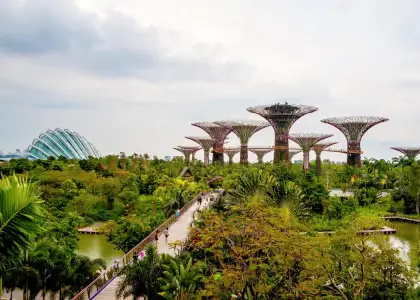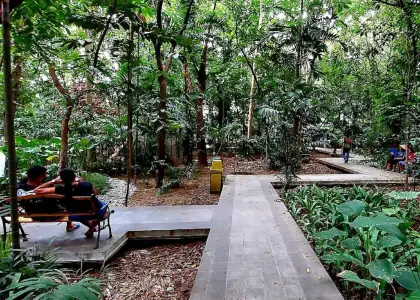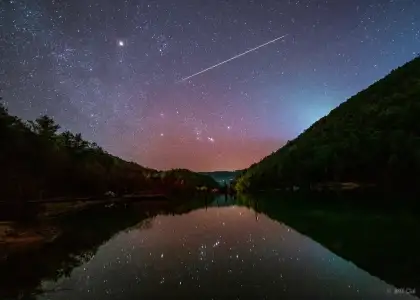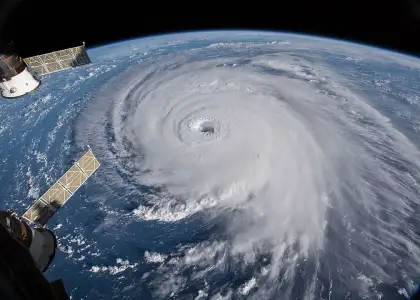Beyond the Blackout: How to Celebrate and Support Earth Hour 2025

Fighting climate change is one of the most urgent challenges of our time. Rising global temperatures, extreme weather events, and environmental degradation threaten ecosystems, economies, and communities worldwide. But there is hope. By adopting sustainable practices, reducing carbon emissions, and supporting clean energy initiatives, we can help slow climate change and protect the planet for future generations.
One powerful way to take action is by participating in Earth Hour, a global movement where millions switch off their lights for one hour to raise awareness and inspire action for a sustainable future.
What Is Earth Hour and When Did It Start?
Earth Hour is a global environmental movement organized by the World Wide Fund for Nature (WWF) to raise awareness about climate change, sustainability, and energy conservation. It encourages individuals, businesses, and landmarks around the world to switch off non-essential lights for one hour as a symbolic act of commitment to protecting the planet.
The initiative was born in 2007 from a think tank led by Earth Hour co-founder Andy Ridley, resulting in a partnership between WWF-Australia, global creative powerhouse Leo Burnett, and media company Fairfax Media to address climate issues. Leo Burnett, in particular, played a key role in promoting the idea and transforming it into a large-scale campaign. What started as a local effort in a city down under has since evolved into a global movement spanning over 190 countries.

Beyond the symbolic switch-off, Earth Hour has also sparked important conversations and inspired real-world environmental actions advocating for a more sustainable future, including tree-planting campaigns, legislative changes supporting renewable energy, and other conservation efforts.
When and What Time Is Earth Hour This 2025?
In 2024, Earth Hour saw a record-breaking 1.5 million hours given to the planet across 180+ countries. Iconic landmarks, from the Eiffel Tower to the Empire State Building, joined the global switch-off, while prominent figures like UN Secretary-General António Guterres and Kenyan Olympic marathon champion Eliud Kipchoge amplified the movement.
Building on this success, this year's Earth Hour will take place on Saturday, Mar. 22, 2025, from 8:30 PM to 9:30 PM local time. They aim to surpass the previous record and reach two million hours. The event follows a rolling schedule, which means that the switch-off happens at each participating country’s local time, starting from the earliest time zones and moving westward across the globe.
What Earth Hour Activities Can You Attend in Your Country?
Earth Hour is more than just switching off lights; it’s a global movement that brings communities together through meaningful activities that promote sustainability and environmental awareness. From live performances to eco-friendly challenges, there are countless ways to get involved.
In Hong Kong, you can head to Ocean Terminal Deck, Harbour City and join the Earth Hour Carnival. This celebration features engaging workshops, interactive booths, and performances, including a Children’s Gala Performance led by Isaac Ng, eco-themed busking sessions with Mic Chow and Mark Chan, and a stand-up comedy show by Tim Chan. Art enthusiasts can explore ceramic sculptures from St. James’ Creation, while Repair Café HK will offer pop-up repair stations to promote sustainability.

Singapore is also organizing its WWF Earth Hour Festival 2025 at Sensoryscape, Sentosa with a host of day-long celebrations featuring interactive workshops, live entertainment, and sustainability-themed activities. These include a solar light-making workshop, a bubble show, and performances from XiXi, Karyn & Sheng Li, EARL the Band, and Alhambra Bellydance.

For those living in the Philippines, WWF-Philippines encourages everyone to log their environmental actions in the Hour Bank and participate in the Earth Hour Virtual Run, a nationwide event to collectively outdo last year’s 179,734-kilometer distance. Participants can sign up to contribute their steps in a fun and meaningful way, reinforcing the importance of active participation in conservation efforts.

Celebrations vary around the world so it's best to inquire with your country's respective WWF and local organizations.
What Can You Do Aside from Switching Off Lights?
Helping the environment doesn't have to happen only during a specific hour! Beyond turning off the lights during Earth Hour, there are many ways to help save the planet through daily actions.
Conserving energy, for instance, is a simple yet effective step. Using energy-efficient appliances, switching to renewable energy sources, and unplugging devices when not in use can significantly reduce electricity consumption. Fixing leaks to minimize water waste can likewise contribute to sustainability.
Living more sustainably also means reducing waste, reusing items, and recycling whenever possible. Composting food scraps keeps organic waste out of landfills, while choosing second-hand products and avoiding fast fashion support a circular economy. Supporting brands that prioritize ethical and eco-friendly practices is another way to make a difference.

In addition, transportation choices play a key role in reducing carbon emissions. Walking, biking, carpooling, or using public transportation instead of driving alone can lower a person's carbon footprint. If driving is necessary, opting for a fuel-efficient or electric vehicle can make a positive impact.
More importantly, protecting nature and wildlife is a must. Planting trees, creating green spaces, and avoiding products that contribute to deforestation, such as unsustainable palm oil, help maintain ecosystems. Making mindful choices, like supporting local farmers and using reusable items, are also small actions that add up to meaningful change for the planet.

Get the latest curated content with The Beat Asia's newsletters. Sign up now for a weekly dose of the best stories, events, and deals delivered straight to your inbox. Don't miss out! Click here to subscribe.


















































